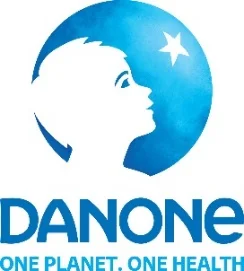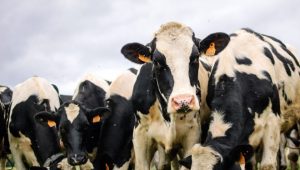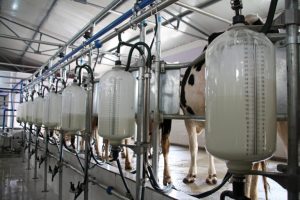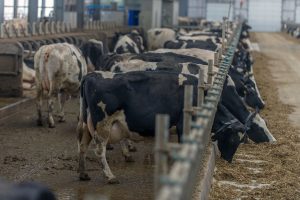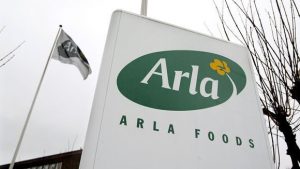
The dairy alternatives market is booming. According to Meticulous Research, the category is expected to grow at a CAGR of 11.2% to reach $44.89 billion by 2027. Currently, plant-based products are reaping the benefits of favourable consumer trends, including environmentally conscientious consumerism. The dairy industry has been in the firing line over issues ranging from animal welfare to the carbon footprint of cattle.
But there are some barriers to growth in plant-based dairy. Most notably, plant-based formulations struggle to deliver a comparable, functional taste and nutritional profile to their animal-based counterparts. So, what if you could get bio-identical dairy products – just without the involvement of the cow?
In some markets you already can. In the US, for instance Perfect Day produces ingredients like whey protein via precision fermentation using genetically engineered microbes. Already, consumer products are hitting the market with recent launches like Tomorrow Farms brand Bored Cow and Strive Nutrition. Even food and beverage giants are starting to dip their toes in the water – with Mars launching a lactose-free milk chocolate brand called CO2COA featuring Perfect Day’s non-animal whey protein.
In Europe, the regulatory environment is less favourable. But innovators are still pushing the envelop in animal free dairy, with pioneers like Real Deal Milk, Remilk, Formo and Fermify all progressing technology in the space.
“Technology is transforming this industry and opening up opportunities,” Itziar Ortega, Senior VP of Global Operations at Eatable Adventures, said at FoodNavigator’s Protein Vision event.
Beyond precision fermentation, we’re also seeing the emergence of cell-based innovators that leverage technologies similar to those applied in the cultivated meat space. More nascent still, is molecular farming, a technology that aims to use plants as ‘bioreactors’, Ortega explained. “Let’s try to use nature’s technology and manipulate that to produce the ingredients we are looking for,” she detailed.
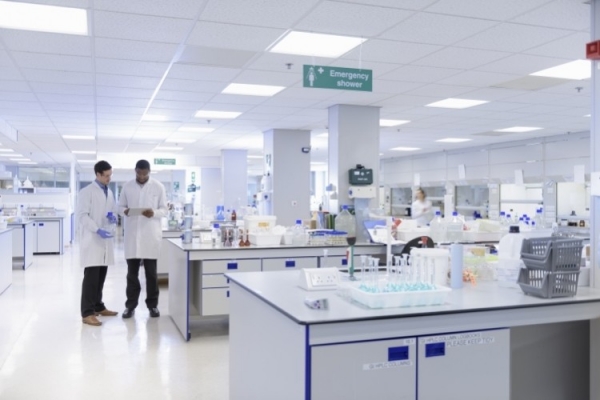
Traditional dairy should participate in disruption
The idea of using microbes to produce dairy proteins in bioreactors, creating milk from cultured cells, or even through molecular farming, might once have sounded like science fiction. Today it is science fact. And Spanish dairy-to-drinks group Calidad Pascual has taken note.
Gabriel Torres-Pascual is the third generation of the family to work in the business, which was founded by his grandfather in 1969. “My grandfather who founded the company was a visionary… Innovation is at the core of everything we do, and we invest a lot in innovation,” Torres-Pascual, who is the Innovation Director at the company, explained.
Torres-Pascual is also CEO of Pascual Innoventures, the open innovation arm of Pascual. Alongside Eatable Adventures, Pascual Innoventures set up the first global incubator specialising in next generation dairy innovation, the Mylkcubator, in 2021.
Through this platform, Pascual is supporting innovation in what many traditional dairy players would view as a strategic risk: the development of technologies that can produce animal-free dairy proteins. “We are part of this ecosystem… to create this new space,” Ortega noted.
So, why is a traditional dairy player helping advance the development of next generation dairy production?
“Technologically it has the potential to disrupt traditional dairy operations,” Torres-Pascual told us at Protein Vision. “It is our responsibility to be a part of that disruption, to anticipate and cooperate.”
Beyond the technological advancements, Torres-Pascual sees a number of drivers supporting growth in alternative methods to produce dairy.
At the heart of our operations is the consumer. Consumer habits and beliefs are changing,” he told the audience. “The environment is another factor driving this movement. We take responsibility for that. And we take responsibility from a food safety point of view.”
“I don’t have a crystal ball. I don’t know how to anticipate the future. But I want to be a part of shaping that future.”
Conventional versus next gen? Is Torres-Pascual predicting an end to dairy farming as we know it? Not necessarily. “I don’t know when we [dairy] might be disrupted or if the end state will be something complementary,” he said.
“We like to say this is complementary dairy rather than alternative,” added Ortega.
Torres-Pascual stressed the need to manage disruption coming from the adoption of new technologies with a mind to the potential impact this could have on different stakeholders in the industry. “Wherever the world might take us, we need to take responsibility in providing opportunities. If traditional dairy operations are disrupted to whatever extent, we need to be working with that ecosystem so they don’t suffer.”
Torres-Pascual suggested that as emerging methods of animal-free dairy production continue to develop, it is likely that there will ‘at least transiently’ be a time when conventional and next generation dairy work ‘in combination’. So, while Pascual is eyeing developments in the next gen dairy space with keen interest, it is also working to make its conventional dairy business future-fit, with work including reducing the environmental impact of dairy farming.
“It will take a lot of time to see a world where no animals are used to make dairy. There is also a lot of potential [to innovate] within traditional approaches – the farms, the cattle – to make dairy production net zero. There are a lot of technologies to achieve less methane emissions, you have to look at those and implement.”
Ortega agreed that the road to bringing animal-free dairy into the mainstream is likely to be a long one.
The dairy tech experts predicted that the first stage of this development will see the introduction of business-to-business concepts in food, but also in pharma and cosmetics. Torres-Pascual believes this evolution will see conventional and animal-free processors working hand-in-hand as the technology is able to ‘help dairy producers in our ingredient businesses’, by making ingredients that are more cost effective, for instance.
Ortega also expects dairy ingredients to act as a wedge formation, as next gen ingredients are introduced to products ‘already in portfolios’.
“We are in the very beginning of what we think is the future with regards to dairy,” she concluded.




